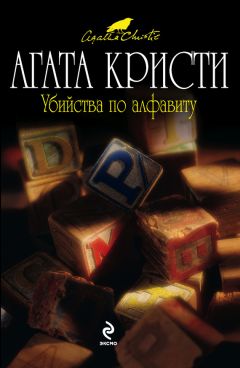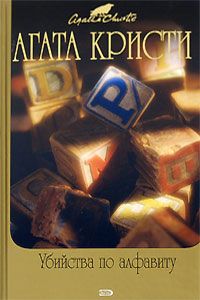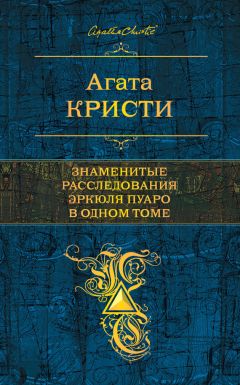Agatha Christie - Английский язык с Агатой Кристи. Убийства по алфавиту
He chuckled (он хохотнул). "I remember one man (я помню одного человека) — I've never forgotten him (я никогда не забуду его) because of something he told me (из-за того, что он мне сказал) — we just got talking over a cup of coffee (мы просто разговорились за чашкой кофе), and we started dominoes (и мы начали /играть/ в домино). Well, I felt after twenty minutes (я чувствовал через двадцать минут) that I'd known that man all his life (что я знал этого человека всю его жизнь)."
"What was it that he told you?" asked Poirot (что было то, что он сказал вам = и что же именно он сказал вам?).
flurry [ˈflʌrɪ], chuckle [tʃʌkl], twenty [ˈtwentɪ]
Mr. Cust was a little flurried by this. "I — I — well, I believe I do."
"It is a very absorbing game, is it not, with a lot of skill in it?"
"Oh, there's a lot of play in it — a lot of play! We used to play a lot in the City, in the lunch hour. You'd be surprised the way total strangers come together over a game of dominoes."
He chuckled. "I remember one man — I've never forgotten him because of something he told me — we just got talking over a cup of coffee, and we started dominoes. Well, I felt after twenty minutes that I'd known that man all his life."
"What was it that he told you?" asked Poirot.
Mr. Cust's face clouded over (лицо мистера Каста помрачнело; to cloud — покрываться тучами; мрачнеть). "It gave me a turn (это меня потрясло) — a nasty turn (ужасно потрясло). Talking of your fate being written in your hand (говорил о твоей судьбе, написанной на твоей руке), he was (он). And he showed me his hand (и он показал мне его руку) and the lines that showed (и линии, которые показывали) he'd have two near escapes of being drowned (он дважды едва не утонет: «у него будет два близких избегания утопания») — and he had had two near escapes (и он дважды едва не утонул). And then he looked at mine (а затем он посмотрел на мою /руку/) and he told me some amazing things (и рассказал мне несколько удивительных вещей). Said (сказал) I was going to be one of the most celebrated men in England (я буду одним из самых известных людей в Англии) before I died (прежде чем я умру). Said the whole country would be talking about me (что вся страна будет говорить обо мне). But he said (но он сказал) — he said — "
Mr. Cust broke down (мистер Каст превался) — faltered (дрогнув; to falter — спотыкаться).
"Yes?"
Poirot's gaze held a quiet magnetism (взгляд Пуаро обладал спокойной притягательностью: «содержал тихий магнетизм»). Mr. Cust looked at him (мистер Каст посмотрел на него), looked away (посмотрел в сторону), then back again (затем снова назад) like a fascinated rabbit (как кролик на удава: «как загипнотизированный кролик»; to fascinate — зачаровывать; гипнотизировать, зачаровывать взглядом)
falter [ˈfɔ:ltǝ], magnetism [ˈmæɡnɪtɪzm], fascinated [ˈfæsɪneɪtɪd]
Mr. Cust's face clouded over. "It gave me a turn — a nasty turn. Talking of your fate being written in your hand, he was. And he showed me his hand and the lines that showed he'd have two near escapes of being drowned — and he had had two near escapes. And then he looked at mine and he told me some amazing things. Said I was going to be one of the most celebrated men in England before I died. Said the whole country would be talking about me. But he said — he said — "
Mr. Cust broke down — faltered.
"Yes?"
Poirot's gaze held a quiet magnetism. Mr. Cust looked at him, looked away, then back again like a fascinated rabbit.
"He said — he said (он сказал) — that it looked (что это выглядело) as though I might die a violent death (как будто я мог умереть ужасной смертью) — and he laughed and said (и он засмеялся и сказал): 'Almost looks (выглядит почти /так/) as though you might die on the scaffold (как будто вы можете умереть на эшафоте),' and then he laughed (а затем он засмеялся) and said that was only his joke (что это была только его шутка) …"
He was silent suddenly (неожиданно он замолчал). His eyes left Poirot's face (его взгляд оставил лицо Пуаро) — they ran from side to side (он бегал по сторонам: «из стороны в сторону») …
"My head (моя голова) — I suffer very badly with my head (я страдаю очень сильно из-за моей головы), the headaches are something cruel sometimes (головные боли иногда жестокие). And then there are times (и временами: «затем есть времена») when I don't know (когда я не знаю) — when I don't know — "
He broke down (он прервался).
Poirot leant forward (Пуаро наклонился вперед). He spoke very quietly (он говорил очень тихо) but with great assurance (но очень убедительно: «но с большой убедительностью»).
violent [ˈvaɪǝlǝnt], scaffold [ˈskæf(ǝ)ld], badly [ˈbædlɪ]
"He said — he said — that it looked as though I might die a violent death — and he laughed and said: 'Almost looks as though you might die on the scaffold,' and then he laughed and said that was only his joke …"
He was silent suddenly. His eyes left Poirot's face — they ran from side to side …
"My head — I suffer very badly with my head … the headaches are something cruel sometimes. And then there are times when I don't know — when I don't know — "
He broke down.
Poirot leant forward. He spoke very quietly but with great assurance.
"But you do know (но вы на самом деле знаете), don't you," he said (не так ли), "that you committed the murders (что вы совершили эти убийства)?''
Mr. Cust looked up (мистер Каст посмотрел вверх). His glance was quite simple and direct (его взгляд был совершенно простым и прямым). All resistance had left him (все сопротивление оставило его). He looked strangely at peace (он выглядел странно умиротворенным).
"Yes," he said. "I know."
"But (но) — I'm right (я прав), am I not (не так ли)? — you don't know why you did them (вы не знаете, почему вы совершили их)?"
Mr. Cust shook his head (мистер Каст покачал его головой).
"No," he said. "I don't (я не /знаю/)."
commit [kǝˈmɪt], resistance [rɪˈzɪstǝns], peace [pi:s]
"But you do know, don't you," he said, "that you committed the murders?"
Mr. Cust looked up. His glance was quite simple and direct. All resistance had left him. He looked strangely at peace.
"Yes," he said. "I know."
"But — I'm right, am I not? — you don't know why you did them?"
Mr. Cust shook his head.
"No," he said. "I don't."
XXXIV. Poirot Explains
(Пуаро объясняет)
We were sitting in a state of tense attention (мы сидели в состоянии напряженного внимания) to listen to Poirot's final explanation of the case (чтобы послушать последние объяснения Пуаро об этом деле).
"All along," he said (все это время), "I have been worried over the why of this case (я беспокоился по поводу «почему» этого дела = искал причину). Hastings said to me the other day (Гастингс сказал мне на днях) that the case was ended (что дело закончено). I replied to him (я ответил ему) that the case was the man (что это дело — это человек). The mystery was not the mystery of the murders (загадка была не в загадке убийств), but the mystery of A.B.C. (а в загадке Эй-би-си). Why did he find it necessary to commit these murders (почему он посчитал: «нашел» необходимым совершать эти преступления)? Why did he select me as his adversary (почему он выбрал меня как своего противника)?"
tense [tens], attention [ǝˈtenʃ(ǝ)n], select [sɪˈlekt]
We were sitting in a state of tense attention to listen to Poirot's final explanation of the case.




